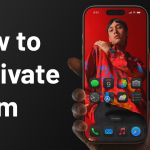What You Need to Know About the Facebook Messenger App
The giant social networking site Facebook was launched on the 4th of February 2004 with a mission to enable people all over the world the ability to share personal and professional attributes with others from all over the world. Facebook thus allows you to connect with close friends and family, to get a glimpse of current world affairs as well as express and share information that matter to them.
As the world became more accustomed to using mobile devices, Facebook sought to capitalize on creating and launching a downloadable mobile phone application in line with the company’s mission statement. Unfortunately, most bloggers and journalists spread erroneous information on the standalone mobile messaging application launched in 2011.
To begin with, most Facebook enthusiasts with mobile devices got the impression that the standalone mobile messaging app was being forcibly imposed on users. More so, given the current situation at the time when the US government and other developed countries were working to profile individuals under the guise of counter-terrorism raised privacy concerns among Facebook users. A great number of individuals were negatively influenced by rumors published in various media outlets to believe that the Facebook messenger app as an invasion to privacy.

For instance, one of the rumors suggested that the app took over the entire control of your mobile device such that Facebook could call your phone numbers, relay test messages without consent. Such erroneous and misinformed rumors only serve to limit your ability to exploit the benefits that the application has to offer.
The truth about the Facebook Messenger mobile device application is that it is only as invasive as the main Facebook software used on desktops. This misconception arose from the fact that when you install the App, a message greeting explaining that application requires your permission to access device components like the microphone, contacts, camera and other data.
Another rumor concerning the app is that if you seek to relay a message to your Facebook pals you have to employ it. The truth is that the company’s terms of services are similar to all its mobile device apps as well as the primary application as seen on desktops. The long list of permissions requested when downloading and subsequently installing the app are common in other applications for mobile devices as well. In essence, the app only uses the components and the data in your device if you agree to it and as such, Facebook has no authority to access any data in or on your device.
At the heart of the rumors negatively impacting on Facebook users is that most mobile devices users are limited to either using android based operating systems or the Apple OS. The Android OS has a rather confusing element in the manner with which apps requests for the owner’s permission to work. For instance, each time you download and subsequently install some new app from the Google Play Store, a rather long listing of app associated permissions requests are displayed on the screen. This presents many users with uncomfortable situations though it is recommended that users should take the time to understand the app permission before installation. Apple OS on the other hand employs a system of granular permissions allowing for each new permission request employed as the app is being used.
Therefore, before using the features of an app on an Apple device, you have to consent to a permission request. The problem is not the Facebook messenger app but the android OS which Google is currently working to correct in its upcoming upgraded version.




